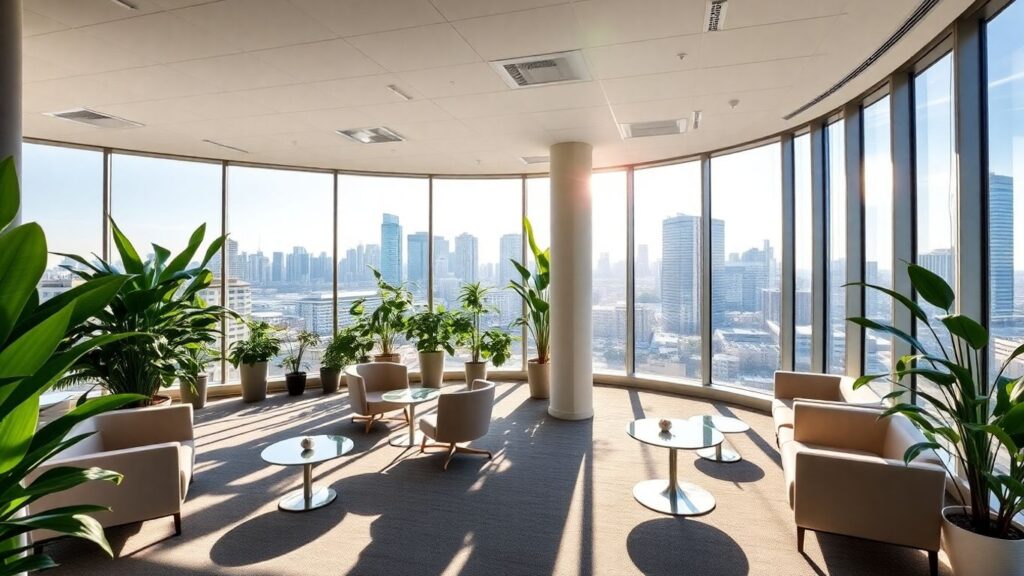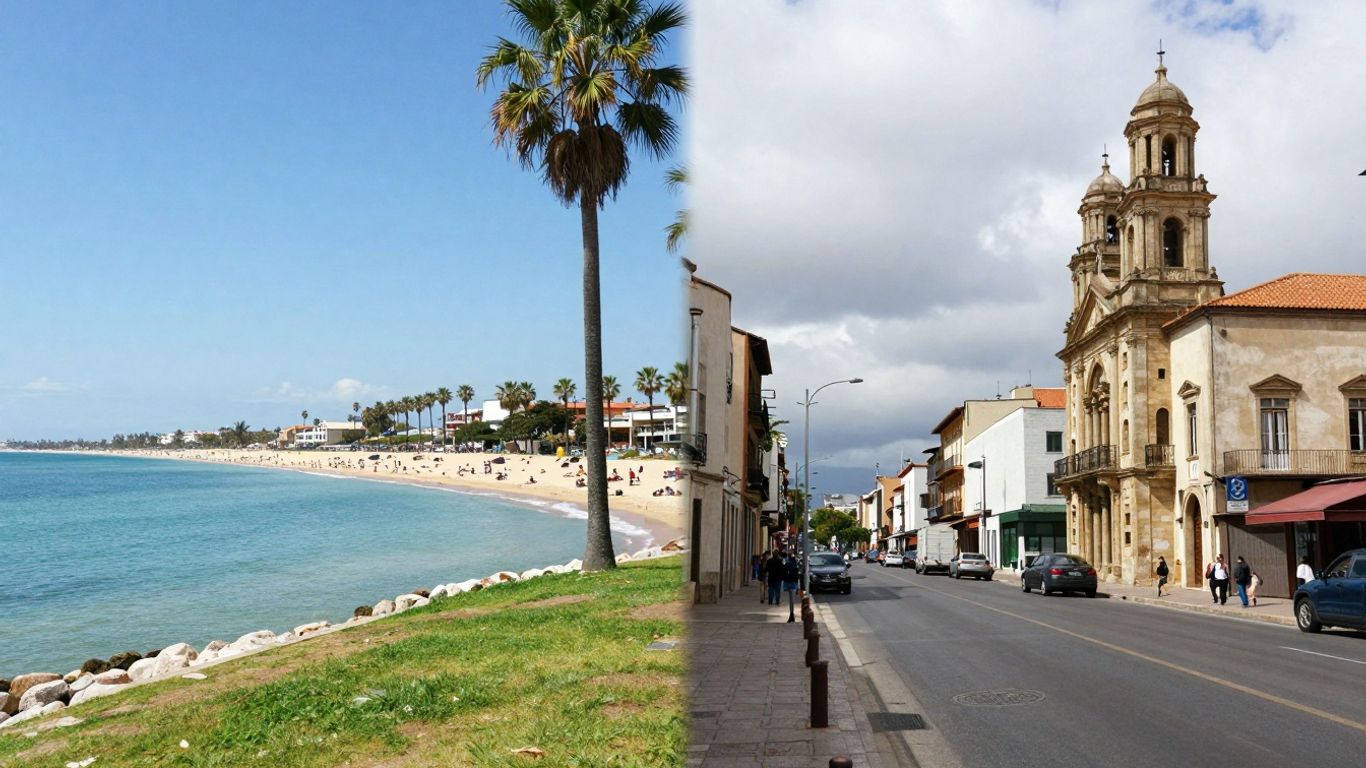Sydney’s tech scene is buzzing, and Microsoft’s presence here is a big part of that. We’re talking about a major player in Australia’s tech landscape, with offices in Sydney that are really at the forefront of innovation. It’s not just about their physical locations; it’s about what they’re doing to push technology forward, especially in areas like AI and manufacturing. Let’s take a look at what’s happening.
Key Takeaways
- Microsoft’s new Innovation Hub in North Sydney is Australia’s first facility focused on AI and digital transformation.
- AI, including generative AI and digital twins, is being used to improve Australian manufacturing processes and upskill workers.
- Australia has a strong pool of software development talent, with companies favouring agile methods and clear processes.
- Microsoft is a significant player in the Australian ERP market, with AI integration being a key future opportunity for these systems.
- Sydney is a hub for tech innovation, with events like CeMAT 2025 highlighting advancements in logistics, aerospace, and robotics.
Microsoft’s Innovation Hub in North Sydney
Australia’s First AI and Digital Transformation Facility
Microsoft has opened its first dedicated AI and digital transformation facility right here in North Sydney. This isn’t just another office; it’s a place designed to help Australian businesses get a handle on new technologies, especially artificial intelligence. Think of it as a hands-on space where companies can explore how AI can actually make a difference in their day-to-day operations, not just in theory, but in practice. They’re focusing on making digital transformation accessible, which is pretty important for a lot of businesses trying to keep up.
Official Opening Announcement
The official opening happened in July 2024, and it was a pretty big deal. It marked a significant step for Microsoft in Australia, showing a real commitment to supporting local industry growth through technology. The aim is to be a central point for innovation, bringing together experts and businesses to collaborate on future tech solutions.
Focus on Emerging Technologies
This hub is really zeroing in on what’s next. We’re talking about generative AI, which is changing how we create content and solve problems, and digital twins, which are virtual copies of physical things used for testing and optimisation. They’re also looking at how these technologies can be applied across different sectors, from manufacturing to healthcare. It’s all about giving businesses the tools and knowledge to adapt and thrive in a rapidly changing digital world. They want to help companies figure out the practical side of adopting these advanced tools, making sure they can actually use them to improve how they work.
Driving Australian Manufacturing with AI

Australia’s manufacturing sector is really starting to embrace artificial intelligence, and it’s not just about shiny new robots. We’re seeing AI being used in some pretty practical ways to sort out problems and make things run smoother. Think about it: factories are complex places, and AI can help make sense of all the data coming from different machines and processes.
Microsoft’s AI Vision for Aussie Manufacturing
Microsoft is putting a lot of focus on how AI can help Australian manufacturers stay competitive. They’re talking about things like generative AI, which can help design new products or even create training materials, and digital twins. A digital twin is basically a virtual copy of a physical asset, like a machine or even a whole factory. By using a digital twin, companies can test out changes or predict when a machine might need maintenance without actually stopping production. It’s a smart way to avoid unexpected downtime. Stacey Lismore from Microsoft and Wesley Nelson from HSO have been talking a lot about these real-world uses, covering everything from keeping supply chains steady to making sure workers have the right skills for the future.
Generative AI and Digital Twins in Factories
So, how does this actually look on the factory floor? Generative AI can be used for things like optimising production schedules or even writing basic code for automated tasks. Digital twins, on the other hand, are great for predictive maintenance. Imagine a machine starts making a funny noise – instead of waiting for it to break down, the digital twin can analyse the data and flag that a part might need replacing soon. This kind of foresight can save a lot of money and hassle. It’s about using technology to get ahead of problems before they even happen. We’re seeing this kind of innovation discussed at events like Australian Manufacturing Week.
Upskilling the Workforce for Automation
Of course, bringing in all this new tech means people need to know how to use it. There’s a big push to upskill the current workforce and train the next generation. This isn’t just about teaching people to push buttons; it’s about developing new skills in data analysis, AI operation, and maintaining these advanced systems. Programs are being developed to help workers adapt to automation, ensuring they can work alongside AI and robots effectively. It’s a shift towards a more collaborative environment between humans and machines, making sure everyone is ready for the future of manufacturing in Australia.
Expertise in Software Development Services
When you’re looking for a software development partner in Australia, it’s not just about finding someone who can write code. You want a team that really gets your business, understands the local market, and can build something solid that lasts. Australian software development companies have a reputation for being thorough and reliable. They often focus on creating secure, scalable applications that can genuinely help your business run smoother.
Choosing a Software Development Partner in Australia
Picking the right outfit is a big deal. You need a team that has experience with the kind of tech you’re using and, ideally, knows your industry. For instance, if you’re in finance, you’ll want a team that understands all the regulatory stuff. It’s about finding that technical sweet spot, but sector savvy counts for a lot too. Look for companies that can show you real examples of their work, not just fancy presentations. Client reviews on places like Clutch or GoodFirms can give you a good idea of what it’s actually like to work with them day-to-day.
Agile Methodologies and Clear Processes
One of the big advantages of working with many Australian development firms is their commitment to agile ways of working. This means you’re likely to see progress regularly, with check-ins that keep everyone on the same page. It’s about transparency – knowing what’s happening, when things are expected to be ready, and how the budget is tracking. This approach makes it easier to adapt if your business needs change, which, let’s be honest, they often do. You’re not locked into a rigid plan that can’t be adjusted.
Skilled Developers and Strong Portfolios
It really comes down to the people doing the work. You want developers who are not only technically skilled but also good problem-solvers and communicators. They should be able to explain complex technical things in a way that makes sense to you. A strong portfolio, showing successful projects with measurable results, is key. It’s also worth considering their commitment to ongoing support and maintenance. Your software’s journey doesn’t end when it’s launched; you need a partner who’s there for the long haul, ready to fix bugs or add new features. Finding a team that aligns with your company’s goals and values is just as important as their technical skills. For example, companies like Antares Solutions focus on creating value through optimized systems and efficient staff.
Building software is a marathon, not a sprint. The best partners understand this and focus on creating solutions that are built to last, adaptable, and maintainable over time. They’re invested in your long-term success, not just the initial launch.
Key Players in the Australian ERP Market
The Australian Enterprise Resource Planning (ERP) software market is a busy space, with a bunch of big names and some local favourites all vying for business. It’s expected to grow steadily, hitting around $1.17 billion by 2030. A lot of this growth is thanks to businesses getting more digital and the service sector really taking off here. Think about it, with services like healthcare and finance getting more complex, having a solid ERP system to keep everything organised and running smoothly is pretty important.
Microsoft Corporation’s Market Presence
Microsoft is definitely one of the major players in Australia’s ERP scene. They’ve got a strong presence, and their solutions are used by a lot of different businesses. They’re always updating their products, and you’ll see them making moves like launching new versions or teaming up with other companies to stay competitive. It’s all about keeping their offerings relevant in a fast-changing market.
Integration of AI Technology in ERP
One of the most exciting things happening is how artificial intelligence is being woven into ERP systems. AI can really change the game by helping businesses make smarter decisions faster, thanks to real-time data insights. It also means more automation, which can cut down on mistakes and make things like managing your supply chain a lot smoother. Predictive AI features are also becoming a big deal, helping with things like forecasting demand and managing stock levels more effectively. This tech is helping companies save money and get more done.
Prominent ERP Software Providers
Besides Microsoft, there are quite a few other significant companies you’ll find in the Australian ERP market. You’ve got giants like SAP and Oracle NetSuite, as well as others such as Salesforce, Xero, Sage, and MYOB. Each of these providers brings something a bit different to the table, catering to various business sizes and needs. It’s a competitive landscape, and these companies are constantly innovating, whether it’s through new product releases or strategic partnerships, to keep their edge. It’s worth looking into what each offers to find the best fit for your specific business requirements.
The complexity of integrating new ERP systems with older, existing software can be a real hurdle for businesses. This process often takes a lot of time and resources, and can even disrupt day-to-day operations, which puts some companies off adopting newer, more efficient solutions.
Sydney’s Role in Tech and Innovation
Sydney’s really shaping up as a major player in the tech scene, not just here in Australia but on the global stage too. It’s a place where new ideas get a real go, and businesses are looking at how technology can change things for the better.
CeMAT 2025: Warehouse Logistics and Supply Chain
When you think about how goods move around, Sydney’s got a big part to play. Events like CeMAT 2025 highlight how important smart logistics and supply chains are. We’re seeing a lot of focus on making warehouses more efficient, using technology to track everything, and generally speeding up how things get from A to B. It’s all about making sure businesses can keep up with demand and get products to customers without a hitch. This focus on streamlining operations is key for Australian businesses looking to compete.
Aerospace Innovation and Digital Twins
Aerospace is another area where Sydney is making waves. Think about the Avalon Airshow – it’s a great spot to see what’s happening. Companies are showing off how things like 3D printing can make aircraft parts lighter and stronger. And then there’s the whole concept of digital twins. Basically, it’s like having a virtual copy of a physical thing, like a plane or a complex system, that you can test and monitor. This helps in designing better products and keeping existing ones running smoothly. It’s pretty clever stuff.
Robotics and AI Integration in Work
Robotics and artificial intelligence are also big talking points. Australia, and Sydney in particular, is looking at how these technologies can help different industries, from mining to farming. It’s not just about having robots on the factory floor; it’s about how AI can help businesses make smarter decisions, automate tasks, and even create new kinds of jobs. There’s a real push to get more people skilled up in these areas so we can all benefit from these advancements. It’s about making work safer and more productive.
The integration of AI and robotics isn’t just about replacing old ways of doing things; it’s about creating entirely new possibilities and efficiencies that were previously unimaginable. This shift requires a proactive approach to skill development and strategic implementation to truly harness the potential.
Partnering for Digital Transformation

So, you’re looking to get your business into the digital age, huh? It’s a big step, and picking the right software development partner in Australia is pretty important. It’s not just about finding someone who can code; it’s about finding a team that really gets your business and can help you grow.
Technical Sweet Spot and Sector Savvy
When you’re looking for a dev team, make sure they know their stuff when it comes to the tech you need. Whether it’s cloud stuff, mobile apps, or even some fancy AI, they should have done it before. It also helps a lot if they understand your industry. Someone who’s worked in finance will know all about security and regulations, which is a big plus. It’s like choosing a plumber who’s actually fixed your type of sink before. You want that specific know-how.
Transparent Operations and Agile Practices
Nobody likes being left in the dark. A good Australian software company will be upfront about how they work. They should be using agile methods, which basically means they break down big projects into smaller chunks and show you progress regularly. You should get updates, have chances to give feedback, and know what’s happening with your budget and timeline. It’s all about clear communication and working together. You don’t want surprises down the track.
Choosing the right development partner isn’t just about ticking technical boxes; it’s about finding someone who truly gets your industry, communicates clearly, and delivers real results.
Long-Term Commitment to Software Maintenance
Getting software built is only half the battle. What happens after it’s launched? A solid partner will be there for the long haul, helping with updates, fixing any bugs that pop up, and making sure everything keeps running smoothly. Think of it like getting your car serviced – you want someone reliable to keep it in top shape. This commitment means your software stays relevant and efficient, protecting your investment. Australia’s startup scene is really taking off, with many innovative companies looking for partners to help them scale across the globe.
Here’s a quick rundown of what to look for:
- Proven Experience: Check out their past projects and client reviews.
- Clear Communication: Regular updates and open feedback channels.
- Industry Knowledge: Do they understand your specific business sector?
- Post-Launch Support: What’s their plan for maintenance and updates?
- Agile Approach: Do they work in iterative cycles with regular check-ins?
Wrapping Up Our Sydney Tech Tour
So, that’s a look at what’s happening with Microsoft and the broader tech scene here in Sydney. It’s pretty clear that Australia, and Sydney in particular, is really stepping up its game. From new innovation hubs opening their doors to companies constantly updating their software to make things easier for businesses, there’s a lot of movement. It feels like a place where new ideas are genuinely being put into action, whether that’s through AI in manufacturing or just making everyday business software run smoother. It’s been interesting to see how these big players are shaping the local tech landscape, and it definitely gives you a sense of the energy driving Australia’s tech future.
Frequently Asked Questions
What’s new at Microsoft’s Sydney office?
Microsoft has opened its first AI and digital transformation hub in North Sydney. It’s a big deal for Australia’s tech scene, focusing on new tech like AI.
How is Microsoft helping Australian factories?
Microsoft is using AI, like ‘generative AI’ and ‘digital twins’, to make Australian factories smarter and more efficient. They’re also helping workers learn new skills for automated jobs.
Why pick an Australian company for software help?
Australian software companies have skilled developers who know how to build reliable systems. They often use ‘agile’ methods, meaning they can adapt quickly, and they focus on making good, easy-to-use products.
Who are the big players in Australia’s business software (ERP) market?
Big names include Microsoft, SAP, Oracle, and Xero. These companies offer software to help businesses manage everything from finances to stock.
What’s happening in Sydney’s tech world?
Sydney is buzzing with tech! Events like CeMAT 2025 will show off new ideas in warehouse tech and supply chains. Plus, there’s lots of cool work happening in planes, robots, and AI.
How do I know if a software company is a good fit?
Look for a company that understands your industry and has real experience with the tech you need. Good companies communicate clearly, show you their progress, and are committed to helping you long-term, not just at the start.





